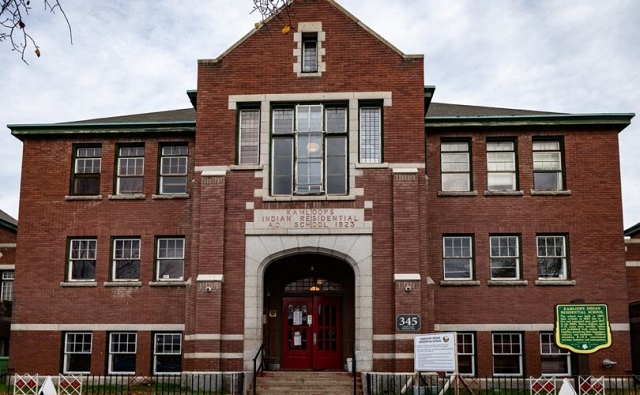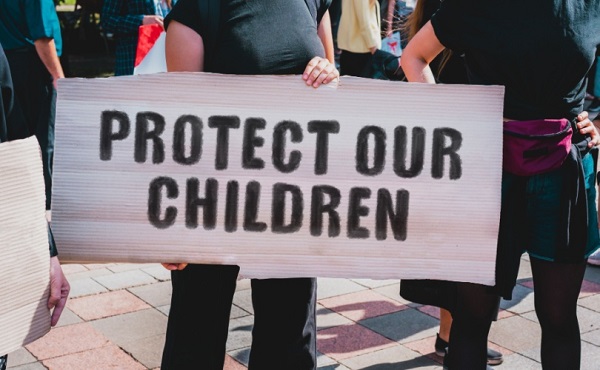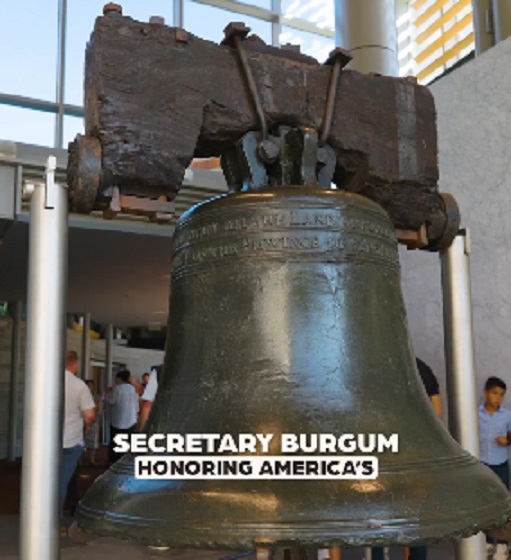Censorship Industrial Complex
CBC continues to push unproven unmarked graves claim, implies ‘denialism’ should be criminalized

From LifeSiteNews
The CBC has published yet another article implicitly promoting the unproven claim that former residential school sites contain the unmarked graves of Indigenous students, citing activist who want dissent from the official narrative criminalized.
The Canadian Broadcasting Corporation (CBC) is still pushing the unproven claim that unmarked graves have been discovered at former residential schools while implicitly calling for “residential school denialism” to be criminalized.
In an October 31 article, the state-funded CBC highlighted former residential school attendees who called for punishments for “residential school denialism,” implying citizens should be punished for denying the existence of unmarked graves despite the fact that no bodies have been found.
“Residential school survivors are calling on Canada to criminalize residential school denialism, echoing one of the findings in a report about unmarked graves and burial sites associated with the institutions,” the government-funded outlet claimed.
According to former students of the schools, those who oppose the mainstream narrative, by pointing out that no unmarked graves have been discovered or that some children benefitted from the schools, which some former students themselves have attested, should be silenced.
Alarmingly, this suggestion to criminalize the denial of an unproven claim is supported by a New Democratic Party (NDP) MP who recently introduced a bill which would charge those who “promote hatred against Indigenous peoples by condoning, denying, downplaying or justifying the Indian residential school system in Canada.”
While the CBC report rigorously outlines the dangers of so-called “denialism,” it failed to mention the above discrepancies in the official narrative.
Residential schools, while run by both the Catholic Church and other Christian churches, were mandated and set-up by the federal government and ran from the late 19th century until the last school closed in 1996.
While some children did tragically die at the once-mandatory boarding schools, evidence has revealed that many of the children passed away as a result of unsanitary conditions due to underfunding by the federal government, not the Catholic Church.
As a consequence, since 2021, when the mainstream media ran with inflammatory and dubious claims that hundreds of children were buried and disregarded by Catholic priests and nuns who ran some of the schools, over 100 churches have been burned or vandalized across Canada in seeming retribution.
Instead of making clear that no bodies have been found, Prime Minister Justin Trudeau’s government and the mainstream media have seemed to sympathize with those destroying churches, as evidenced by a CBC report which appeared to justify the attacks, many of which took place on churches located on indigenous land.
In fact, in 2021, Trudeau waited weeks before acknowledging the church vandalism, and when he did speak, said it is “understandable” that churches have been burned while acknowledging it to be “unacceptable and wrong.”
Similarly, in February, Liberal and NDP MPs quickly shut down a Conservative motion to condemn an attack against a Catholic church in Regina, Saskatchewan. The motion was shut down even though there was surveillance footage of a man, who was later arrested, starting the fire.
Additionally, in October 2023, Liberal and NDP MPs voted to adjourn rather than consider a motion that would denounce the arson and vandalism against 83 Canadian churches, especially those within Indigenous communities.
Censorship Industrial Complex
UK Government “Resist” Program Monitors Citizens’ Online Posts

Alberta
Alberta bill would protect freedom of expression for doctors, nurses, other professionals

From LifeSiteNews
‘Peterson’s law,’ named for Canadian psychologist Jordan Peterson, was introduced by Alberta Premier Danielle Smith.
Alberta’s Conservative government introduced a new law that will set “clear expectations” for professional regulatory bodies to respect freedom of speech on social media and online for doctors, nurses, engineers, and other professionals.
The new law, named “Peterson’s law” after Canadian psychologist Jordan Peterson, who was canceled by his regulatory body, was introduced Thursday by Alberta Premier Danielle Smith.
“Professionals should never fear losing their license or career because of a social media post, an interview, or a personal opinion expressed on their own time,” Smith said in a press release sent to media and LifeSiteNews.
“Alberta’s government is restoring fairness and neutrality so regulators focus on competence and ethics, not policing beliefs. Every Albertan has the right to speak freely without ideological enforcement or intimidation, and this legislation makes that protection real.”
The law, known as Bill 13, the Regulated Professions Neutrality Act, will “set clear expectations for professional regulatory bodies to ensure professionals’ right to free expression is protected.”
According to the government, the new law will “Limit professional regulatory bodies from disciplining professionals for expressive off-duty conduct, except in specific circumstances such as threats of physical violence or a criminal conviction.”
It will also restrict mandatory training “unrelated to competence or ethics, such as diversity, equity, and inclusion training.”
Bill 13, once it becomes law, which is all but guaranteed as Smith’s United Conservative Party (UCP) holds a majority, will also “create principles of neutrality that prohibit professional regulatory bodies from assigning value, blame or different treatment to individuals based on personally held views or political beliefs.”
As reported by LifeSiteNews, Peterson has been embattled with the College of Psychologists of Ontario (CPO) after it mandated he undergo social media “training” to keep his license following posts he made on X, formerly Twitter, criticizing Trudeau and LGBT activists.
He recently noted how the CPO offered him a deal to “be bought,” in which the legal fees owed to them after losing his court challenge could be waived but only if he agreed to quit his job as a psychologist.
Early this year, LifeSiteNews reported that the CPO had selected Peterson’s “re-education coach” for having publicly opposed the LGBT agenda.
The Alberta government directly referenced Peterson’s (who is from Alberta originally) plight with the CPO, noting “the disciplinary proceedings against Dr. Jordan Peterson by the College of Psychologists of Ontario, demonstrate how regulatory bodies can extend their reach into personal expression rather than professional competence.”
“Similar cases involving nurses, engineers and other professionals revealed a growing pattern: individuals facing investigations, penalties or compulsory ideological training for off-duty expressive conduct. These incidents became a catalyst, confirming the need for clear legislative boundaries that protect free expression while preserving professional standards.”
Alberta Minister of Justice and Attorney General Mickey Amery said regarding Bill 13 that the new law makes that protection of professionals “real and holds professional regulatory bodies to a clear standard.”
Last year, Peterson formally announced his departure from Canada in favor of moving to the United States, saying his birth nation has become a “totalitarian hell hole.”
-

 Business1 day ago
Business1 day agoBlacked-Out Democracy: The Stellantis Deal Ottawa Won’t Show Its Own MPs
-

 Artificial Intelligence2 days ago
Artificial Intelligence2 days agoGoogle denies scanning users’ email and attachments with its AI software
-

 Alberta1 day ago
Alberta1 day agoNew pipeline from Alberta would benefit all Canadians—despite claims from B.C. premier
-

 Agriculture23 hours ago
Agriculture23 hours agoHealth Canada pauses plan to sell unlabeled cloned meat
-

 Alberta2 days ago
Alberta2 days agoPremier Danielle Smith says attacks on Alberta’s pro-family laws ‘show we’ve succeeded in a lot of ways’
-

 Crime21 hours ago
Crime21 hours agoB.C.’s First Money-Laundering Sentence in a Decade Exposes Gaps in Global Hub for Chinese Drug Cash
-

 International23 hours ago
International23 hours agoAmerica first at the national parks: Trump hits Canadians and other foreign visitors with $100 fee
-

 Crime21 hours ago
Crime21 hours agoFBI Seizes $13-Million Mercedes Unicorn From Ryan Wedding’s Narco Network







